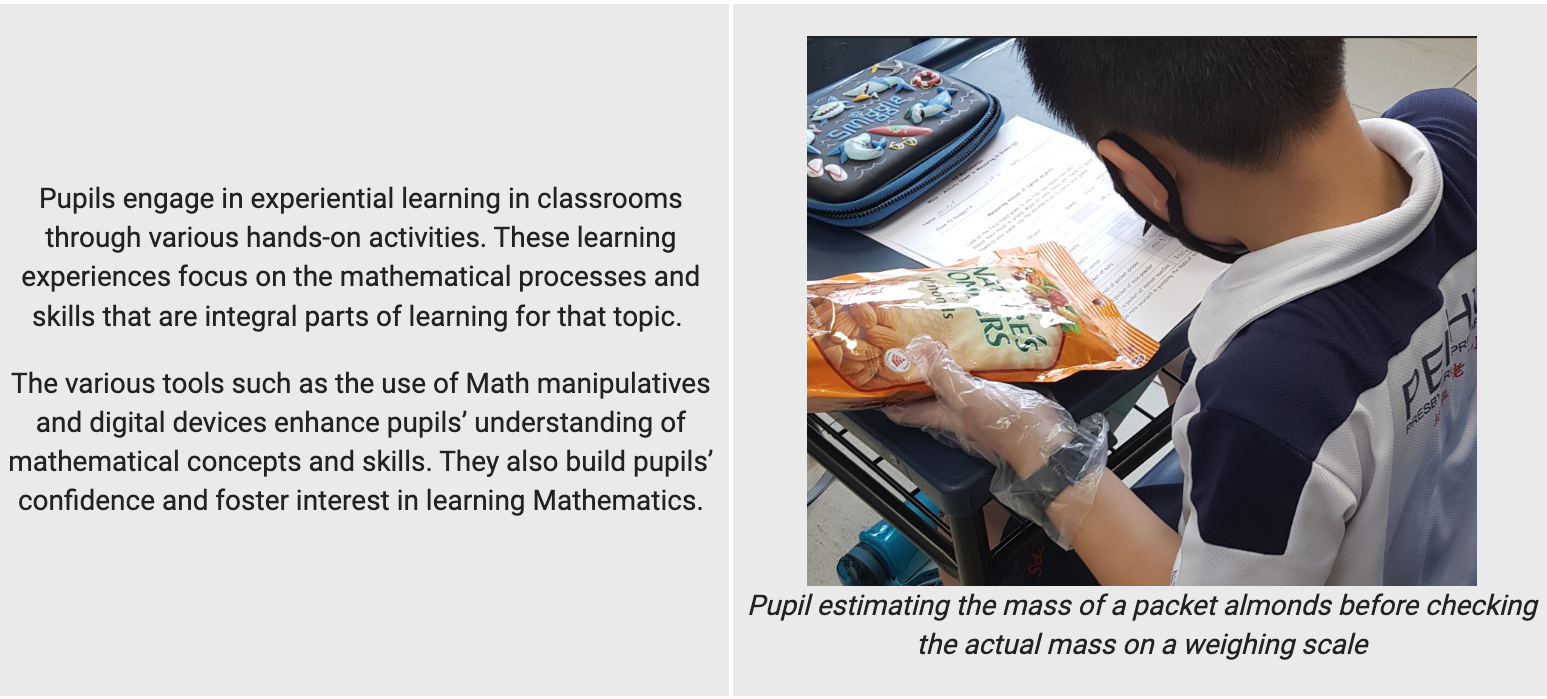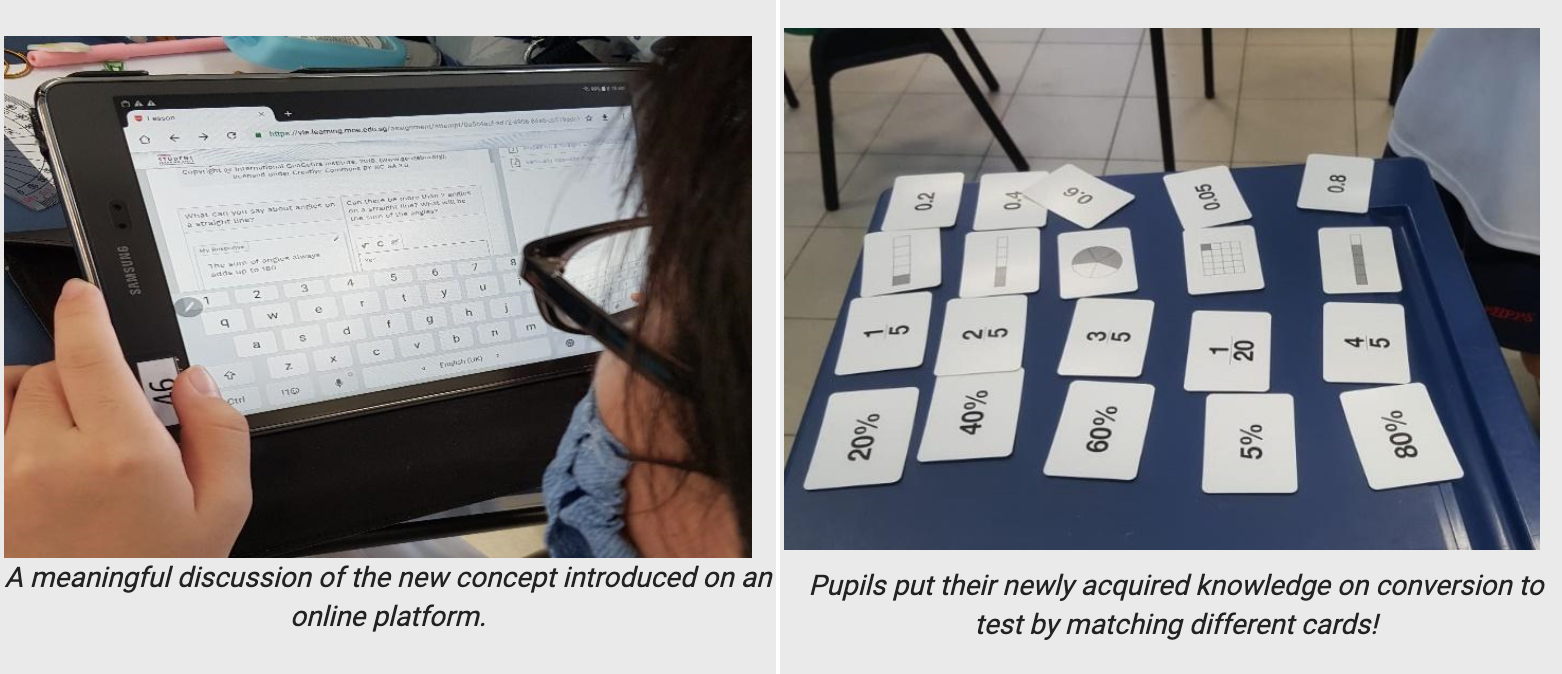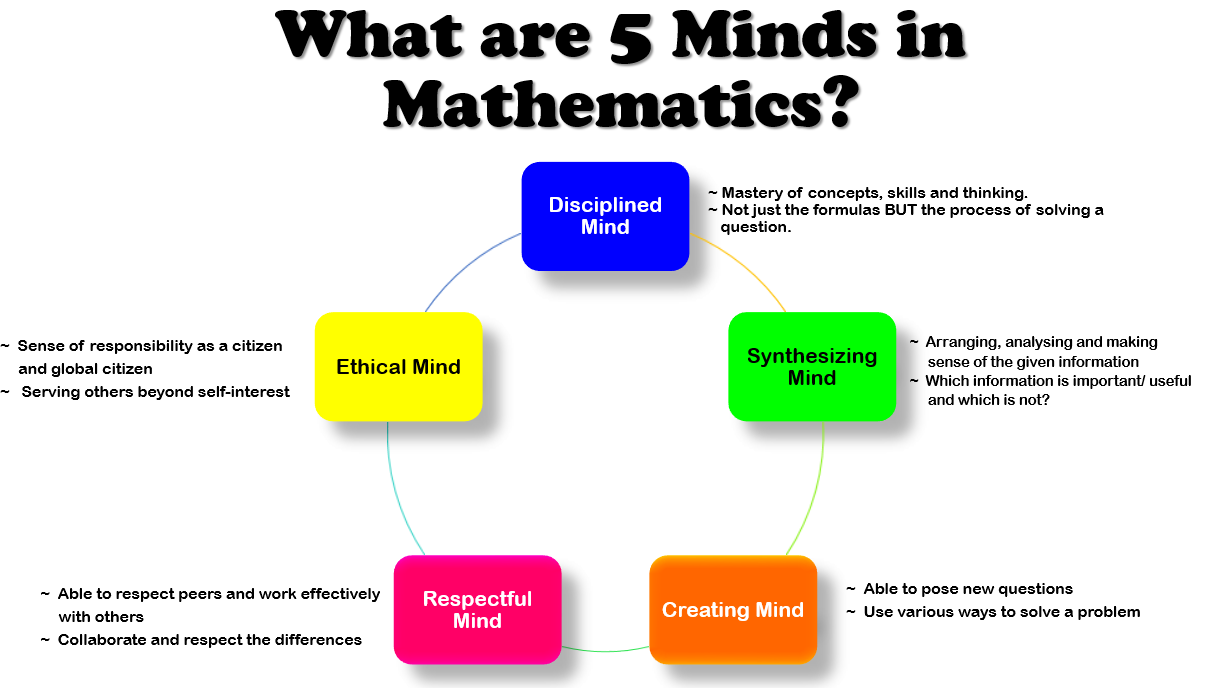Mathematics
The overall objective of the Mathematics curriculum centres on mathematical problem solving. Pupils will acquire mathematical concepts and skills through varied learning experiences, and apply them to solving problems in Mathematics. These learning experiences help to develop cognitive and metacognitive skills, with an emphasis on positive attitudes towards Mathematics. In PHPPS, teachers build numeracy skills in all our pupils and equip them with content mastery for Mathematics. This will provide them with the foundation necessary for further learning. For pupils with strong interest and aptitude in Mathematics, opportunities are given to them for learning beyond the curriculum.



Pupils learning angles and triangle properties using paper cut-outs.
5 Minds for the Future and Making Thinking Visible
In alignment with our school’s initiative to develop pupils to thrive in the VUCA world, the Mathematics department has embarked on Howard Gardner’s ‘5 Minds for the Future’ for our P3 to P6 pupils. Going beyond their classroom problem-solving routines, pupils are exposed to the application of Mathematics in the real-world context while engaging the 5 Minds in various problem-solving processes. With the deployment of appropriate thinking routines for Mathematics, the lessons focus on promoting a deeper understanding and appreciation of the foundational mathematical concepts as well as that in the application of Mathematics in the complex world. It helps pupils make sense of their learning and better relate their knowledge and its application to real-life experiences.
Despite being an extraordinary year due to Covid, 5 Minds lessons were still being carried out via SLS to develop and activate students’ minds.

| Levels | Focus of 5 Minds Task |
|---|---|
| P3 | Fractions & Area and Perimeter |
| P4 | Decimals & Time |
| P5 | Area of Triangles & Percentage |
| P6 | Percentage & Pie Charts |
TTLT (Math) Programme
Pupils will have opportunities to collaborate with their peers and engage in mathematical thinking through resources such as puzzles, games and Mathematics explorations which are specially designed for the programme. The rich learning experiences offered by the programme serve to help pupils develop the habits, attitudes and dispositions mathematicians possess, as well as to gain important 21st century competencies such as critical and inventive thinking and effective communication skills. Similar to the 5 MINDs activities, despite being an unusual year, TTLT was still carried out via SLS to continue to develop our students in the above mentioned skills and competencies.
Useful Online Resources for Mathematics
1 → Primary school mathematics syllabus https://www.moe.gov.sg/docs/default-source/document/education/syllabuses/sciences/files/mathematics_syllabus_primary_1_to_6.pdf
2 → Approved Calculator list for use in Primary 5 and Primary 6. (https://www.seab.gov.sg/docs/default-source/documents/guidelines_calculators.pdf?sfvrsn=d1864e5_8) Guidelines_calculators.pdf
3 → SLS : https://vle.learning.moe.edu.sg/login
4 → PSLE information for Mathematics : https://www.seab.gov.sg/home/examinations/psle

